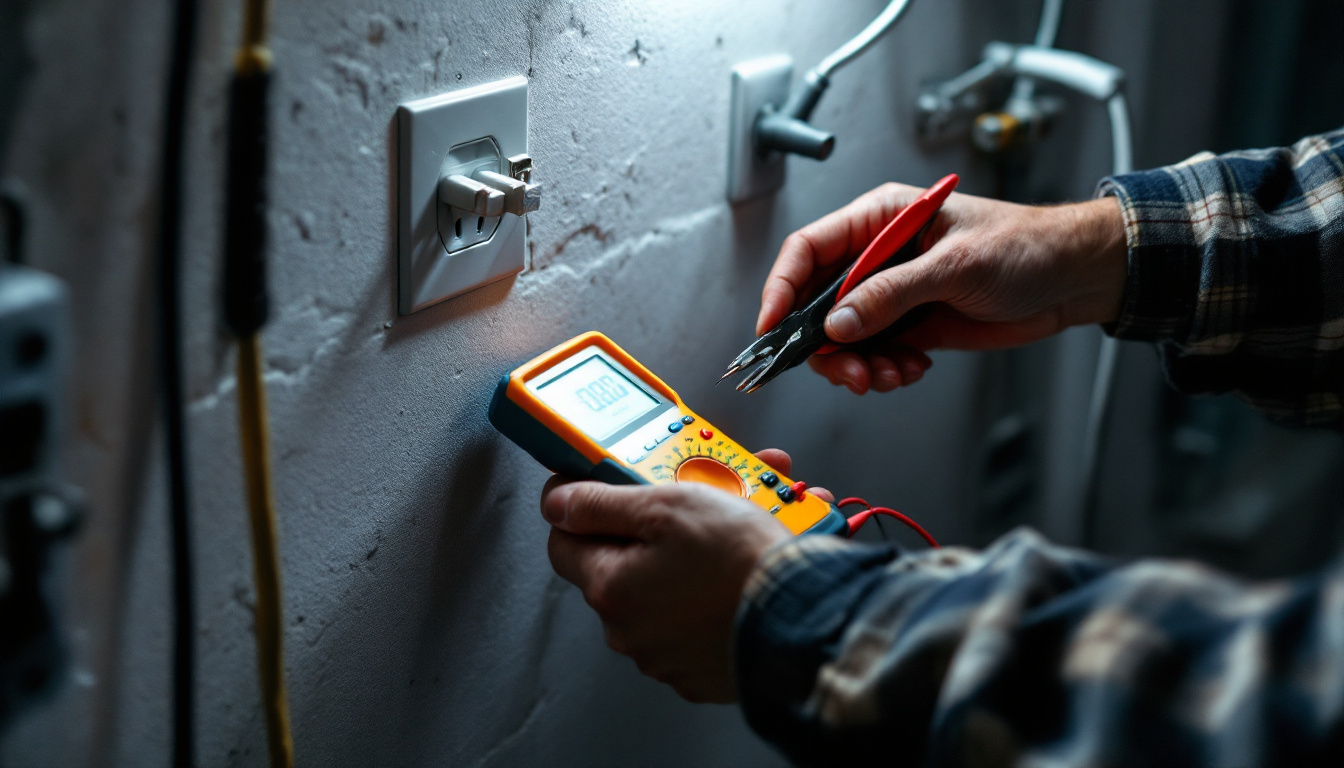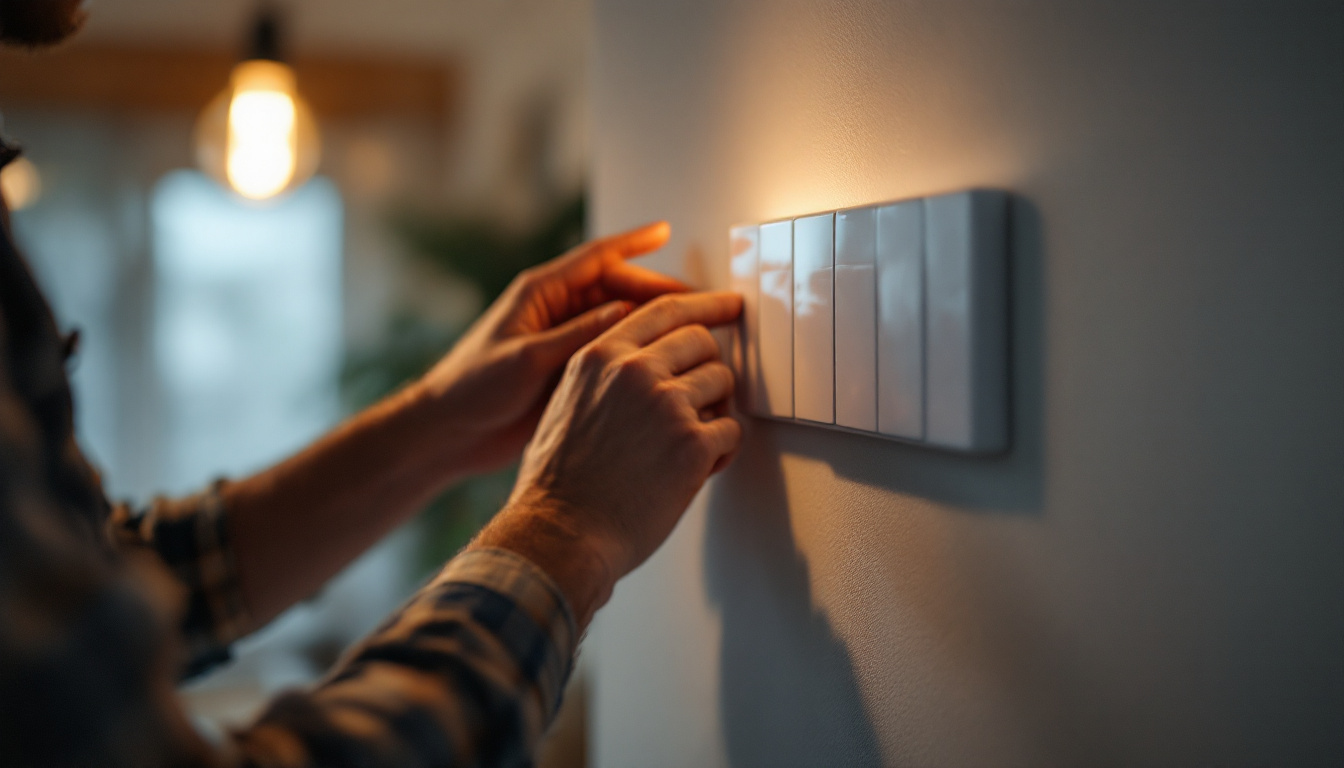
As a lighting contractor, the tools and equipment used in your trade are crucial to delivering quality work. Among the many components that play a significant role in your projects, the single electrical outlet stands out as an essential element. This article explores the tools that every lighting contractor should have in their arsenal, focusing on how these tools enhance efficiency, safety, and overall project quality.
A single electrical outlet is a fundamental aspect of any lighting installation. It serves as the primary connection point for various lighting fixtures and devices, making it vital for both functionality and aesthetics. Understanding the significance of this component can help lighting contractors streamline their work processes and ensure client satisfaction.
In many residential and commercial settings, the placement and accessibility of electrical outlets can dramatically affect the overall lighting design. Properly installed outlets allow for flexibility in lighting arrangements, enabling contractors to create visually appealing and functional spaces. Therefore, having the right tools to work with these outlets is essential for any lighting contractor.
Before diving into the tools needed for working with single electrical outlets, it is crucial to understand the electrical codes that govern their installation. These codes ensure safety and reliability in electrical systems, and compliance is non-negotiable for any professional contractor.
Familiarity with local and national electrical codes can help prevent costly mistakes and ensure that installations meet safety standards. This knowledge not only protects the contractor but also enhances the reputation of their business. Investing time in understanding these codes can pay dividends in the long run.
Equipped with the right tools, lighting contractors can efficiently handle the installation and maintenance of single electrical outlets. Here’s a breakdown of essential tools that should be part of every contractor’s toolkit.
Wire strippers are indispensable for any electrical work. They allow contractors to remove insulation from electrical wires without damaging the conductors. This precision is essential for creating secure connections at outlets and fixtures.
When selecting wire strippers, look for models that offer adjustable settings for different wire gauges. This versatility ensures that contractors can handle a variety of electrical tasks with ease. Additionally, ergonomic designs can help reduce hand fatigue during prolonged use.
A voltage tester is a critical safety tool that every lighting contractor should carry. This device allows contractors to check for the presence of electrical current before starting any work. Ensuring that a circuit is de-energized is vital for preventing electrical shocks and accidents.
Modern voltage testers come in various forms, including non-contact and contact testers. Non-contact testers are particularly useful for quickly checking outlets and wires without making direct contact, enhancing safety and efficiency on the job site.
Having a set of quality screwdrivers and nut drivers is essential for installing and securing electrical outlets. Different types of screws and nuts are used in electrical work, so having a variety of sizes and types on hand is crucial.
Consider investing in insulated screwdrivers to enhance safety. These tools are designed to protect against electrical shocks, making them ideal for working with live circuits. A well-organized tool belt can help keep these tools readily accessible during installations.
Once the necessary tools for handling electrical work are gathered, contractors must also consider the tools specifically designed for the installation of single electrical outlets. These tools streamline the process and ensure that installations are both secure and compliant with electrical codes.
A power drill is an essential tool for any contractor, especially when it comes to installing outlets. A drill allows for quick and efficient drilling of holes for mounting outlets and running wiring. Additionally, having a variety of drill bits on hand is crucial for adapting to different materials, such as wood, drywall, or concrete.
When selecting a drill, consider a cordless model for added convenience and mobility. This feature allows contractors to move freely around the job site without being tethered to a power source, enhancing productivity.
Fish tape is a valuable tool for running electrical wires through walls and ceilings. This flexible tape can navigate tight spaces and bends, making it easier to pull wires to their designated outlets. Using fish tape can save contractors significant time and effort during installations.
When using fish tape, it’s essential to choose a model that is sturdy yet flexible enough to maneuver through various obstacles. Investing in a high-quality fish tape can enhance the efficiency of wire installations and reduce the risk of damage to the wires.
Cutting cables cleanly and efficiently is a vital part of electrical work. Cable cutters are specifically designed to handle this task, providing a clean cut without fraying the wires. This precision is essential for ensuring secure connections at outlets and fixtures.
When selecting cable cutters, look for ergonomic designs that provide a comfortable grip. This feature is particularly important for contractors who may be working with thick cables or performing repetitive cutting tasks throughout the day.
Safety should always be a top priority for lighting contractors, especially when working with electrical outlets. Having the right safety equipment can prevent accidents and injuries, ensuring a safe working environment.
Personal protective equipment is essential for safeguarding contractors while they work. This includes items such as safety glasses, gloves, and hard hats. Each piece of equipment plays a crucial role in protecting against potential hazards on the job site.
Safety glasses protect the eyes from flying debris and sparks, while gloves provide a barrier against electrical shocks and cuts. Hard hats are essential in environments where there is a risk of falling objects. Ensuring that all team members are equipped with appropriate PPE can significantly reduce the risk of accidents.
Ground Fault Circuit Interrupters (GFCIs) are critical for protecting against electrical shock in wet or damp environments. These devices automatically shut off power when a ground fault is detected, providing an additional layer of safety for contractors working in potentially hazardous conditions.
Installing GFCIs in areas such as kitchens, bathrooms, and outdoor spaces is not only a best practice but often a code requirement. Contractors should ensure that they are familiar with GFCI installation procedures and the specific requirements for their projects.
Having a well-stocked first aid kit on hand is essential for any contractor. Accidents can happen, and being prepared can make a significant difference in emergency situations. A first aid kit should include items such as bandages, antiseptic wipes, and burn cream, among other essentials.
Regularly checking and replenishing the first aid kit ensures that it is always ready for use. Additionally, contractors should consider taking a basic first aid and CPR course to be better prepared for emergencies on the job site.
Investing in quality tools is just the first step; maintaining them is equally important. Proper care and maintenance can extend the life of tools and ensure they perform optimally when needed.
After each job, contractors should take the time to clean their tools. Dust, debris, and moisture can accumulate and lead to rust or malfunction. Using a soft cloth to wipe down tools and removing any debris can help keep them in good condition.
For power tools, refer to the manufacturer’s instructions for specific cleaning guidelines. Regular maintenance can prevent costly repairs and ensure that tools are always ready for use.
Having a dedicated storage solution for tools can help keep them organized and easily accessible. Toolboxes, bags, and wall-mounted racks can all serve as effective storage options. Proper storage not only protects tools from damage but also makes it easier to find the right tool for the job.
Consider labeling storage areas to further enhance organization. This practice can save time on the job site and reduce frustration when searching for specific tools.
Conducting routine inspections of tools is essential for identifying any wear and tear before it becomes a significant issue. Check for signs of damage, such as frayed wires on power tools or dull blades on cutting tools. Addressing these issues promptly can prevent accidents and ensure that tools remain safe to use.
Keeping a maintenance log can help track the condition of tools and remind contractors when specific maintenance tasks are due. This proactive approach can save time and money in the long run.
For lighting contractors, understanding the importance of single electrical outlets and having the right tools for their installation is crucial. From wire strippers to safety equipment, each tool plays a vital role in ensuring quality and safety on the job site.
By investing in high-quality tools, maintaining them properly, and prioritizing safety, contractors can enhance their efficiency and deliver exceptional results to their clients. As the industry continues to evolve, staying informed about new tools and techniques will further empower lighting contractors to excel in their work.
Ultimately, the combination of skill, knowledge, and the right tools will set successful lighting contractors apart in a competitive market. Embracing these elements will not only lead to satisfied clients but also foster a reputation for excellence in the field.
Ready to elevate your lighting projects with the best tools in the trade? Look no further than LumenWholesale for all your lighting needs. Our extensive selection of spec-grade lighting products is available at unbeatable wholesale prices, ensuring you get the most value for your investment. Say goodbye to local distributor markups and hello to high-quality, reliable lighting solutions that meet the highest industry standards. Plus, with free shipping on bulk orders, you can stock up on all the essential tools without any hidden fees. Don’t compromise on quality or cost—choose LumenWholesale for the perfect blend of affordability and convenience. Wholesale Lighting at the Best Value is just a click away.

Discover the essential insights lighting contractors need to meet client expectations with 2 ft LED light fixtures.

Discover why LED bulbs are revolutionizing the lighting industry and why contractors should prioritize them in their projects.

Discover the key qualities that distinguish top lighting contractors when it comes to installing 3 switch light switches.

Discover the ultimate guide to selecting the perfect light bulbs with our essential checklist tailored for lighting professionals.